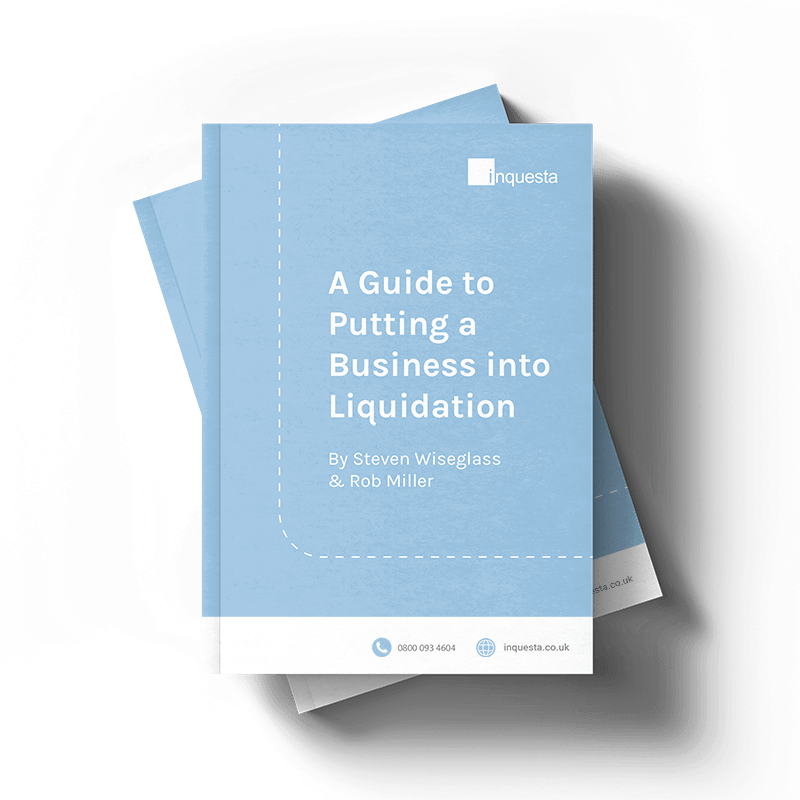
STATUTORY DEMAND DEFENCE: EXPERT ASSISTANCE
Receiving a statutory demand is incredibly stressful and often overwhelming for any business owner. Acting quickly is essential, as ignoring it may result in serious legal consequences, including liquidation. If you are considering setting aside a statutory demand, or require expert advice for your statutory demand defence, Inquesta is here to help.
What is a Statutory Demand for Payment?
A statutory demand is a legal notice served by a dissatisfied creditor to formally request payment of outstanding debts. While it is not an official court order, it does carry significant weight in insolvency proceedings.
This first step in the statutory demand process acts as a warning sign that legal action may follow if payment is not made. If you believe the debt to be invalid, defending a statutory demand or disputing its legitimacy is crucial to protecting your business. Consequences include creditors submitting a winding-up petition to dissolve the company — making prompt action key.
How Long is a Statutory Demand Valid For?
A statutory demand is valid for a period of 21 days from the date it is served. During this period, the onus is on you to either pay the debt, negotiate with the creditors, or apply for setting aside the statutory demand (if you believe there is a genuine cause to dispute the debt).
It is vital that you act within this period if you wish to avoid further escalation.
How to Respond to a Statutory Demand
You can challenge a statutory demand if certain conditions apply. This is vital in your statutory demand defence strategy. Common steps to follow when challenging a demand include:
- Evaluate the Demand: Review the details contained within the demand and verify the validity of the debt under scrutiny.
- Seek Professional Advice: Early consultation with an insolvency expert can help you to better understand your position and determine the best course of action.
- Take Necessary Action: Regardless of whether you are settling the dispute or negotiating the demand, acting promptly within the 21-day window is vital if you want to protect your business.
Challenging a Statutory Demand
You can challenge a statutory demand if certain conditions apply. These include:
- Debt Validity: You have grounds to dispute the existence or amount of the debt.
- Procedural Errors: The demand was not served correctly or does not comply with legal requirements.
- Counterclaims: You have a legitimate claim of your own against the creditor that would offset any debt.
It’s important to note that any applications for setting aside a statutory demand must be made within 18 days of receiving it. Navigating the statutory demand defence process is complex, and expert guidance is recommended to improve your chances of a successful statutory demand defence.
Download our FREE Guide to Liquidation
If your business has received a winding-up petition, understanding the liquidation process is vital. If you aren’t able to get your winding up petition dismissed, or addressed in another way, it can easily lead to compulsory liquidation if not addressed quickly, making it essential to explore your options and take well-informed action.
Our FREE Liquidation guide provides clear, expert advice on:
- Key warning signs that your business may be in danger of possible liquidation.
- Which insolvency options are available and which ones best suit your situation.
- What the liquidation process looks like
- Things you should be aware of throughout the process.
- What life after liquidation looks like.
If you’re considering liquidation or seeking more information, download our comprehensive Liquidation Guide and explore everything you will need to know.

Statutory Demand Defence Process
Are you facing a statutory demand? Working with an experienced insolvency practitioner is crucial in successfully defending a statutory demand. At Inquesta, we follow an established and strategic process designed to help you mount the strongest defence possible. Our team is on hand to handle every aspect of your statutory demand defence — from start to finish.
This process includes:
Why Choose Inquesta
Facing a statutory demand can be daunting for business owners, but you don’t need to handle it on your own. Our experienced team of statutory demand defence experts is on hand to offer comprehensive support throughout the process.
We are here to assist with all aspects of your statutory demand defence. Whether it’s determining the validity and legality of the demand, preparing a robust case for setting aside the statutory demand, or negotiating with creditors, our experienced team is ready to act swiftly and decisively on your behalf.
Inquesta understands the urgency and complexity of responding to statutory demands. Here’s why you can trust us to help:
- Years of expertise navigating statutory demands and business debt issues.
- Solutions catered to fit the unique needs of your business.
- Fast and efficient actions to prevent escalation.
Get In Touch
Meet the Director
We’ve assembled an expert team that has decades of experience offering directors’ statutory demand defence solutions.

Steven Wiseglass
Director of Insolvency
A co-founder of Inquesta, Steven is a licensed Insolvency Practitioner with over a decade of experience in the field. He is a member of the Insolvency Practitioners Association, Association of Business Recovery Professionals (R3), and his insolvency licence is issued by the Insolvency Practitioners Association. In addition, he sits on the R3 committee of the North West Regional Committee.
Steven specialises in advising directors of small to medium-sized businesses, and has a wealth of expertise in providing the most appropriate advice whatever the firm’s circumstances may be. He has also been instrumental in helping company directors save their business and rebuild them into successful enterprises.



